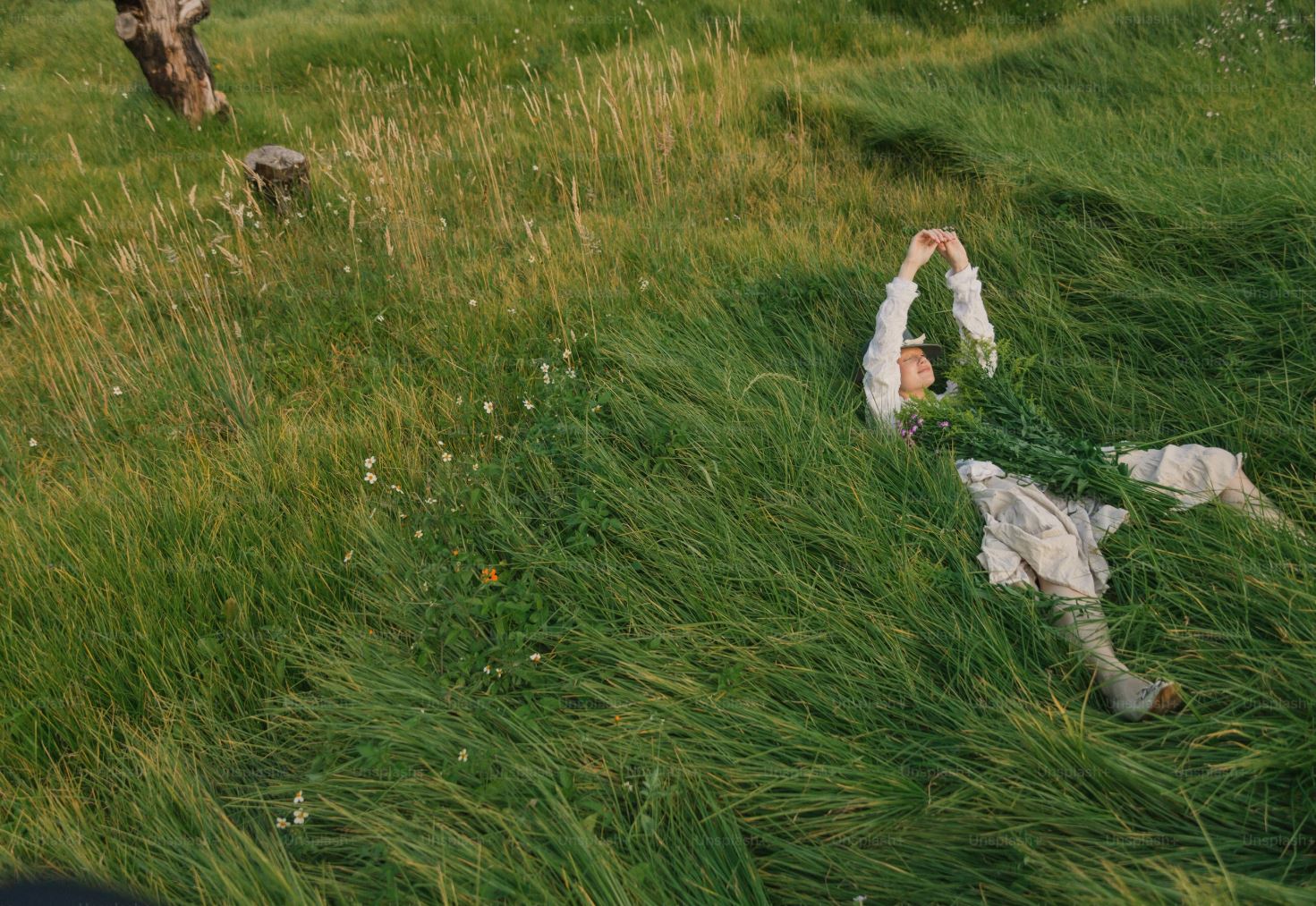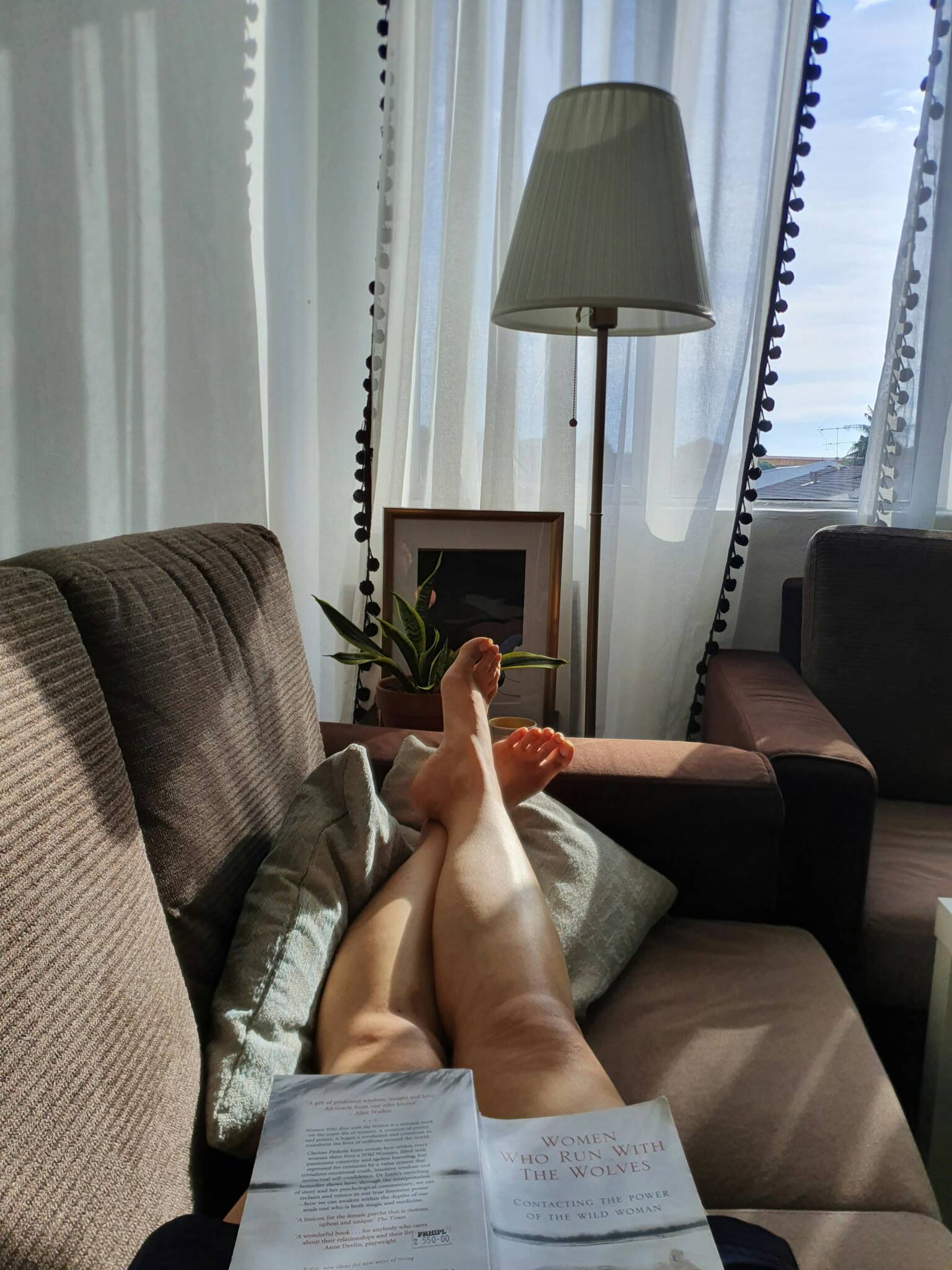In Partnership with iHerb
You check your emails while making coffee. Catch up on news and the latest Substack while absentmindedly eating lunch at work. You half-watch a show while scrolling on your phone. Even rest has a to-do list now.
We’re busier than ever. Mentally, emotionally, it’s a lot. So the idea of slowing down? Lovely in theory. But in real life, it can feel impossible.
You know you’re tired (statistically, you probably are; 61% of Australian workers agree), and that this pace, the always-on and always-available, isn’t working.
We know it’s not always easy to slow down. But it helps. Truly.

Here are five small (almost infinitesimal) rituals that can make everyday life feel more manageable. With a few optional tools for a little extra support.
Start Your Day a Little Slower
Our body’s primary stress hormone, cortisol, peaks around 30 minutes after we wake up. Which makes this window the most important for regulating our mood and focus. What you do during that window can set the tone for the rest of the day.
Instead of reaching for your phone, start with flexing your toes as you open your eyes to help you feel more awake. Stretch, slowly. Pull back the covers and open a window. Let the morning in. Breathe deeply. Then spend (at least) the next half hour setting yourself up for the day.
- Make a cup of tea.
- Meditate or journal to set your intentions for the day.
- Read a few chapters of a book.
- Go for a walk or jump straight into your morning workout.
- Create a ritual around preparing a nourishing breakfast.
Create the habit of a slow, intentional morning, so those first minutes of your day belong to you, not your phone.
Extra tools to try: Caffeine-free herbal teas can gently support your slower mornings. iHerb stocks an excellent range of teas with ingredients like chamomile, lemon balm, and ashwagandha — all known for their calming properties.
Create a Pause in the Middle of the Day
Midday is when many of us crash mentally, physically, (emotionally). But it can also be a time to come back to yourself.
Studies show that short breaks can help with attention, creativity, and overall mood. You don’t need an hour-long lunch break or a nature walk (though both are lovely). Just five minutes of doing nothing on purpose. Even the simplest act of walking around (bonus points for fresh air), doing a few shoulder rolls, or having a drink of water (without multitasking) is enough to reset.
Extra tools to try: A snack and a stretch will support your energy levels naturally. If you find your energy dips hard in the afternoon, adaptogens or magnesium powders can also help.


Time to Wind Down, But With Intention
If your night ends with a mindless scroll through Instagram while half-watching a show, you’re in good company. It’s how a lot of us try to switch off. But our brains don’t register that as rest.
Sleep experts agree that consistent wind-down cues help your body transition into sleep mode. They’re signals that the day is done.
They help improve your sleep, they lower stress, and they support your circadian rhythm. And we need better than screen time to help us sleep.
Try dimming the lights an hour before bed. Put your phone on the charger in another room. Read a book, listen to a gentle podcast, or music.
Extra tools to try: If sleep doesn’t come easily for you, try nighttime teas with passionflower or valerian root. A magnesium-rich bath soak, or a cooling eye mask to help support the transition to sleep.
Create Transitions Through The Day
In our always on culture, the boundaries between parts of the day have completely blurred. We answer emails over lunch. Clean the kitchen while half-watching Netflix. Wake up and immediately start thinking about work. But transitions matter more than we realise, they give our brain space to reset.
Creating small rituals between activities helps signal a shift in focus. These cues give your nervous system a chance to move out of high-alert mode, reducing mental fatigue and decision overload.
Research shows that our brains respond positively to repetition and routine. Studies in cognitive neuroscience suggest that these “habitual cues” can reduce the energy needed for decision-making and support emotional regulation throughout the day.
So rituals, even simple ones, can increase our sense of control and reduce anxiety, particularly during periods of change or uncertainty.
Try this:
- Play a specific playlist when work ends.
- Change your clothes when you get home.
- Light a candle before dinner.
- Step outside for some fresh air after doing the dishes.
Small markers to say: that part of the day is over, and this one is beginning.
Extra tools to try: Try lighting a candle, or using a room spray or essential oils, or a diffuser in your favourite scents. Using the same, familiar scents you associate with rest can help your brain register the shift.

End the Week Gently
Weekends shouldn’t feel like a second job. But they often do. Ending the week with a gentle, intentional ritual can help you reset mentally and give you a stronger start to the one ahead.
Don’t think of this as another thing to schedule. It’s more about creating a small pause. Something that allows you to reflect, take stock, or just be.
- Put your phone away on Friday night.
- Cook a meal that feels comforting.
- Write down three good things from the week, even if it wasn’t your best one.
- Plan one nourishing thing for the week ahead to look forward to.
- Or simply sit somewhere quiet with a cup of tea and do nothing at all.
If being still is not for you. Try something repetitive and tactile. Folding clothes, making something, knitting or kneading dough (for all you sourdough makers). Basically, any hands-on task to engage your senses and encourage your brain to enter a state of “flow,” which has been shown to reduce anxiety and support focus.
Extra tools to try: A warm bath is always a good idea. The trusty herbal tea blend, or a mini facial ritual at home for a little self-care.
One Last Thought
Slow living doesn’t mean pretending that life isn’t busy. It just means giving yourself permission to move through the day a little more gently. Supported by small rituals to help you reconnect with your time, your space, and yourself.
Start with one ritual. Let it stick. Then maybe add another. And over time, these small anchors create a rhythm. One that moves at your pace.
And that, in a busy world, is enough.
This post contains paid links from our partner iHerb


